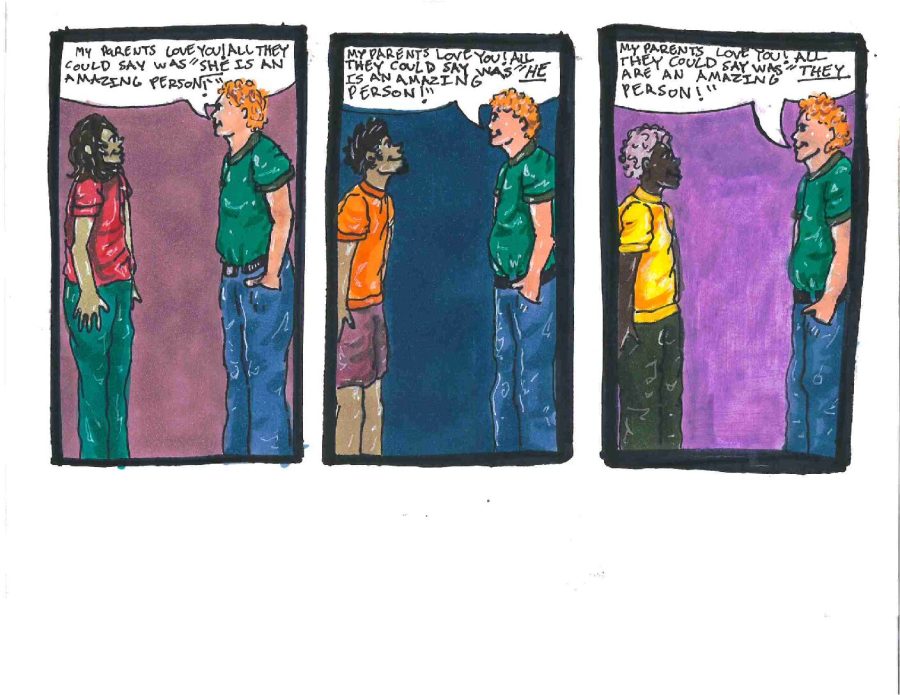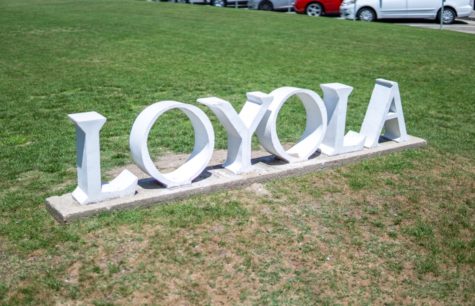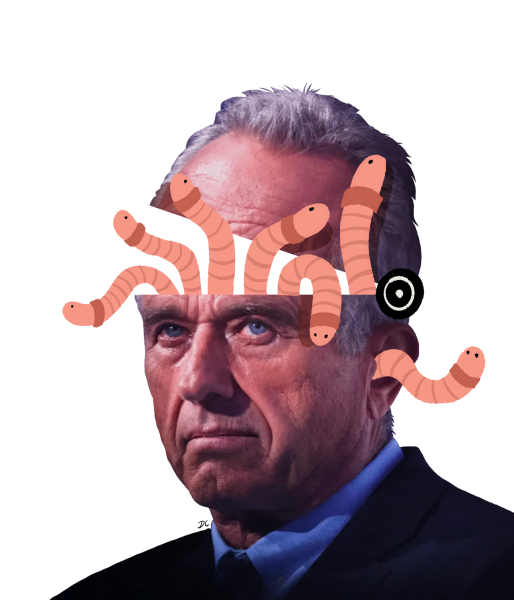OPINION: Respecting pronouns is not a choice
Have you ever been in a situation where you or one of your friends are misgendered by another student or individual? If you haven’t, (speaking from experience) correcting someone is a pretty awkward situation — especially if the person is adamant about misgendering or doesn’t understand the concept of it. The whole concept of gender is actually incredibly simple because it all has to do with respect.
I can’t speak for everyone because pronouns are a very personal thing and everyone will have their own reasoning or belief systems on why they want certain pronouns. This isn’t to say that the open discussion can’t be had. I can say for myself that I love informing or coming to an understanding with those that want to learn about pronouns.
However, pronouns stem from identity. When you act like someone’s pronouns don’t matter to you, you’re saying, “I do not respect you or your identity.”
Whether or not this is actually intended or whether or not misgendering comes from a lack of understanding doesn’t take away from the fact that it has that impact. That type of rhetoric is very hard to forget or to forgive.
To open the discussion, the idea that she/her or he/him pronouns have to be the only pronouns as well as being attached to a person’s assigned birth gender is a societal myth. These pronouns have been historically attached to gender roles and image, and create what we know as the gender binary today.
This societal concept has formed this idea in our community that she/her equates strictly to femininity and he/him to masculinity. These gender roles are seen as polar opposites of one another, so what one is the other is not. But was that ever true, or just internalized? Why are people who identify as women expected to adhere to femininity, and vice versa for male-identified people?
Why does a person have to adhere to one or the other at all?
So this is where it becomes personal. Because it is a primary part of our society, pronouns are incredibly important. If someone doesn’t want to adhere to the expectation of their assigned pronouns, they shouldn’t have to. It has to do with the concepts America loves to emphasize: “free will” and “individualism.”
Contrary to popular belief, these aren’t contemporary or far-fetched concepts. Pronouns have always been around, the binary has always been around, and there have always been those that reject it from their very being, regardless of if they’ve had a voice in the past.
So there is the explanation of the possible reasoning or discussion behind how a person wants to be identified. In a real situation, however, just because someone goes by certain pronouns doesn’t mean they have to explain to you why they have them just because you don’t understand.
It is not their job to provide an explanation about their identity, but rather all of us have a responsibility to respect one another and our pronouns regardless of how we feel about them. The wonderful part about individualism is that if you do not like certain pronouns, you yourself do not have to adhere to them! What does anyone gain from questioning or worrying about the pronouns of others?











Cuba Libre • Apr 6, 2022 at 4:17 pm
See here’s the issue, and hear me out, your view is a false sense of entitlement, respecting a person is a choice, so yes it’s a choice if I want to use them or not. Your not forced to do anything- unless you like how China Venezuela Cuba or Russia does things. I was born in cuba, I’m not exactly into so socialism which is where the mindless want it, they promise you free stuff and strip your rights. You should respect people and use their preferred pronouns, out of respect. If you force people you see rise in like extremism and neo Nazi groups. Remember we want equality of opportunity which rarely results in equality of outcome- makes sense right. Don’t force people but respect one another.
WOKE LOYNO • Dec 8, 2021 at 12:03 pm
pure insanity….
SueKZ • Nov 7, 2021 at 9:48 pm
Misgendering? Mostly, it is mistaking. If someone is obviously one gender or the other, don’t expect people to meet your fantasy gender. Speak the truth. Ignore other people’s nonsense.
George • Nov 7, 2021 at 7:41 pm
BS